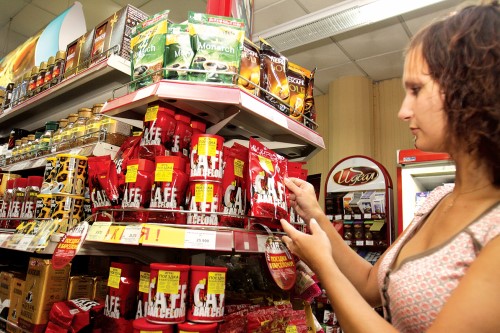
Photo: Vitaly GIL
The Trade Ministry believes the figure is modest, since France and the UK have almost 80 percent retail coverage via chain outlets. However, Belarus is unlikely to achieve a similar situation, since its current trading regulations dictate that no player should account for more than 20 percent of turnover in regional centres and districts.
At present, the Ministry is completing analysis of the past financial year — to present yellow and red cards to networks. It seems that few will avoid receiving them, judging by the branch’s intensive development. Some time ago, Brest Regional Executive Committee calculated that one of the region’s major chain stores accounted for over 20 percent of turnover in Pinsk and Baranovichi, as well as in the Kobrin and Zhabinka districts. Logically, the number of such enterprising companies is sure to expand.
The Trade Ministry notes that, in cases of an exceeded limit, no further sites may be bought or rented to sell food products. Moreover, executive committees will refuse to register trading sites for networks which already enjoy 20 percent. These shops will need to change their focus. The Ministry promises to update its data every August.

A Euroopt hypermarket in Mogilev. Photo: BELTA
Major networks are openly dissatisfied, stating that such limits hamper their business development. However, law-makers feel differently and have debated reducing the limit to 15 percent. The Chairman of the House of Representatives’ Standing Committee on Economic Policy, Victor Valyushitsky, states, “Chain stores should remain calm and accept this, working on their strategies. If we fail to implement these limits, we’ll see monopolies emerge, which will dictate conditions to everyone, as Dobronom has demonstrated.”
Infamously, Dobronom’s network of 177 shops invested over Br60bn of profit into constructing new sites, rather than paying its suppliers. However, its share of domestic products (in comparison to ordinary retail shops) is impressive. It also sells half the volume of non-food products as other such shops. As Dobronom’s owners explain, it avoids high prices and low quality products, since neither enjoys much demand.
“Quality and prices are conventional. I guess around 10-15 percent of imported products being offered by chain stores could easily be replaced by domestic goods,” says Mr. Valyushitsky.
By Maria Dronova











